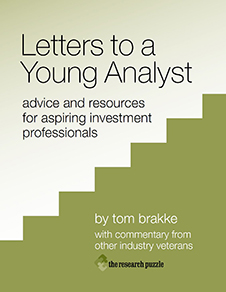
- Saturday, June 23rd, 2012
- billions and billions
-
Late one Saturday night, after some merriment, a group of golfers got talking about government spending (of all things). “Who can even understand what a billion dollars is?” one of the revelers asked. “I can,” another blurted out, going on to explain how he had a hand in managing even more than that. More than twenty years have passed since that night, but the questioner still calls me “Billions and Billions.”
It was other people’s money I was talking about. Today there is a fascination with the real billionaires — those that have that much on their own. Yes, there have always been rich folks and we’ve been increasingly putting them on lists since Forbes got into the act. Once the fortunes got into the billions, however, we had a new and powerful name for those few that attained that goal.
We don’t use tycoon or financier or industrialist much any more (well, we haven’t had that many industrialists lately, except in emerging economies), but billionaire has become the description du jour. To prove the point, keep track of the number of times that the word “billionaire” is used during the next week to describe someone in a business or investment story. In newspapers and blog postings, on television and radio, in research reports, wherever. Then ask yourself why it was used in each case and what impact it had on your interpretation of the story.
Let’s take one recent example. InvestmentNews published an article that began, “Billionaire Ken Fisher . . . .”InvestmentNews | The story is credited to Bloomberg News (speaking of billionaires), but I didn’t find it on the Bloomberg site. It went on to describe the fact that Fisher’s firm has been buying equities in China (via an ETF), thinking that efforts to stimulate growth will result in China doing better than “global equities.”
So, what is the purpose of “billionaire” in that story? I would, for example, be interested in Fisher’s history as it relates to investment in China, but that’s not referenced. I did find out that he was a billionaire though.
What does that tell me about his investment prowess? Fisher is a controversial figure in the money management business and I could give you facts that make him look good and facts that make him look bad — and we could examine the nature of his track record and when he does best and when he does worst. But he didn’t become a billionaire because of his investing. He is a marketing machine and that machine is designed to attract other people’s money, because managing other people’s money is one of the ways you get to be a billionaire.
By and large, the hedge fund billionaires that you read about got rich off of the two-and-twenty (or higher) that they charge clients, even if their investment records swamped Fisher’s. While hedge funds are derided as “compensation schemes,” some other billionaires got theirs mostly through the magic of stock option grants bestowed on them by boards of directors. A few billionaires had one incredible idea many years ago and haven’t needed another. Others inherited their billions.
While there are stories where it is warranted, it has become standard practice for lazy journalists to use the billionaire description virtually all the time it can be applied. And my guess is that there are lots of investors who think it matters when a billionaire says or does something, even when it doesn’t.
Perhaps I should give a prize to the person who counts the most uses of the word during the next week, or provides the most egregious example. Unfortunately, I don’t have billions and billions or I’d peel you off a few.
